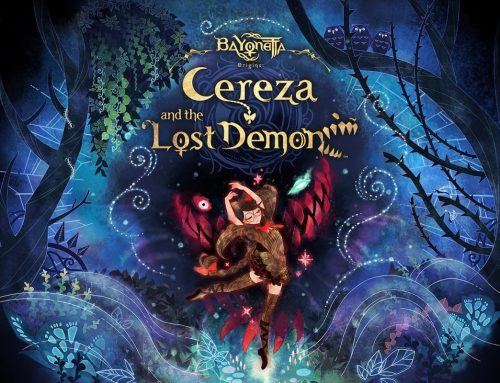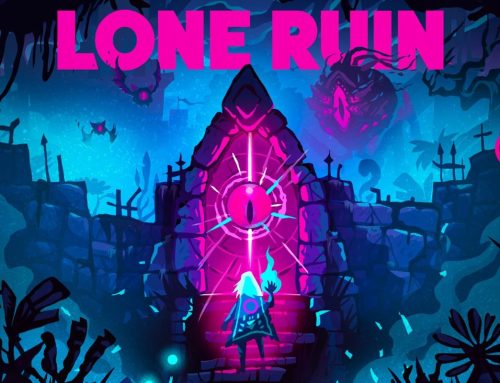In real life, cults can be rather horrifying. More often than not, these groups take advantage of the most vulnerable people, while empowering some occult mastermind. It might be a rather odd premise for a video game, but Cult of the Lamb does a remarkable job of presenting it as a gameplay mechanic and to satirical comedic effect.
Cult of the Lamb
Nintendo Switch, Windows PC, Mac, PlayStation, Xbox
Developed by Massive Monster
Published by Devolver Digital
Released: 11th August 2022
£22.49 on the Nintendo eShop
Note: This review was written based on the experience of playing the PC version of Cult of the Lamb, which is identical to the Nintendo Switch version in terms of features. We omit any discussion on graphical features and performance.
From a certain perspective, Cult of the Lamb is effectively two distinct games in one package. On one end, we have a roguelike dungeon crawler, akin to so many indie games of the past decade. On the other side, there is a townbuilding simulation that will feel like home to players of Animal Crossing or Stardew Valley. The tricky part is how to bridge these seemingly unrelated components into one gameplay loop, and that’s where the cult comes in. The player character effectively signed a deal with the devil that grants immortality in exchange for gathering worshippers, building a cult on the demon’s behalf, and destroying competing religions.

The main objective of the campaign happens in the dungeons, each belonging to a eerie bishop and each crowded with creatures trying to murder you. Along the way, we also gather resources and rescue critters that we can bring home for the cult. At the encampment, we need to manage the wellbeing and prosperity of the claimed citizens in order to maximize their faithfulness to you and to the cult.
Unlike Animal Crossing, these beings are not necessarily your friends and they can very well be treated as disposable resources. However, it’s impossible not to have some level of compassion for the cute critters who work so hard and follow your orders. You want them to be happy in that little community, because the external world is so hostile and unpredictable. You also want them to be happy because happy citizens are hard workers and loyal worshippers. Quite a conundrum.
Your followers’ loyalty pays off in two major ways. First, it can unlock more and more buildings for the town, turning it into an even more efficient worship center. But it also provides a larger and more powerful variety of weapons and spells to use in the dungeons. After a certain point, the villagers themselves can be turned into demons that follow you into battle and provide a variety of benefits.

Although the premise and the blend of genres are fascinating, I felt like Cult of the Lamb has its fair share of problems. The roguelike aspect of the game is rather basic, something especially palpable when we know the genre has been explored to death in other games. It feels good enough to play, but the level and enemy design just don’t stand out.
The townbuilding is actually the thick of the game, and I do feel it’s way more developed, but it’s surprising how quickly you can “complete” it. The game doesn’t really push you in one direction or the other, so I found myself spending more time in the town than the dungeons. There are four dungeons, and I was almost out of combat-related upgrades to invest in using my available worship. But I kept playing it more often, because it had a more satisfying loop: gather resources, place buildings, give sermons, perform rituals, cook food… There are many activities to do throughout the day and you can generally continue doing them until you absolutely need to collect more of a certain kind of resource.
Even though our villagers exist to serve us, there are some activities that require a good bit of manual labor. For instance, planting, harvesting and cooking food is a very manual process until rather late into the game (and is still not fully automated then). There’s also an action to increase one villager’s loyalty, but you have to do it with each villager, each day. The day/night cycle affects tasks like this, as well as the followers’ routines and certain buffs in the dungeon crawling side of things. A character’s age is measured in days, so there are only so many things you can do with them before they grow old and die.
Increasing your follower’s loyalty allows you to create and perform rituals, which open interesting new possibilities, like preventing villagers from sleeping or keeping your cult’s overall faith level high for a few days. Unfortunately, I found out too late that some choices that I made earlier on locked me out of far more powerful options. A word of advice: when the game prompts you to choose between the Resurrection and Funeral rituals, choose resurrection.

The resource distribution is kind of wacky, and sometimes a material that seemed so scarce becomes overly abundant, making it hard to properly plan the investments you make for the future. Perhaps the most hilarious of these is… well, poop. At first, your followers simply defecate at their own leisure, causing all sorts of sanitary hazards. Turns out this annoyance is actually a valuable resource, since poop serves as a fertilizer for your crops and is even a required material for some constructions. Building an outhouse certainly reduces the sanitary concerns, but you still have to ensure it’s not dirtier than a port-o-potty after a festival. It all comes together when one follower asks to eat an enormous bowl of poop and, after their death, you can compost their body into… well, more poop.
The last thing to say is that, near release, the game had several small bugs and issues going on. Nothing particularly game-breaking, but I did come across many small annoyances, the biggest of which made me have to fight a boss again. The developers did publish frequent patches to resolve the issues, but it seemed like new problems were being introduced as fast as old ones were being fixed. I’m sure this will be better by the time some readers get around to it.

Although I seem to have complained a lot about the game, it comes from a place of appreciation. It’s a great game that falls short on its way to excellence. Cult of the Lamb attempts a rather ambitious form of game design and succeeds more often than it fails — these failures are often related to game elements that are novel and not necessarily “solved”. Once it receives a good dose of bugfixes, balance patches and content updates, I suspect Cult of the Lamb might become an even stronger game than it already is. In any case, the devs have certainly gathered enough attention to start a cult of their own and I will keep an eye out for their next venture.
Our score: 3.5 out of 5












Leave A Comment
You must be logged in to post a comment.